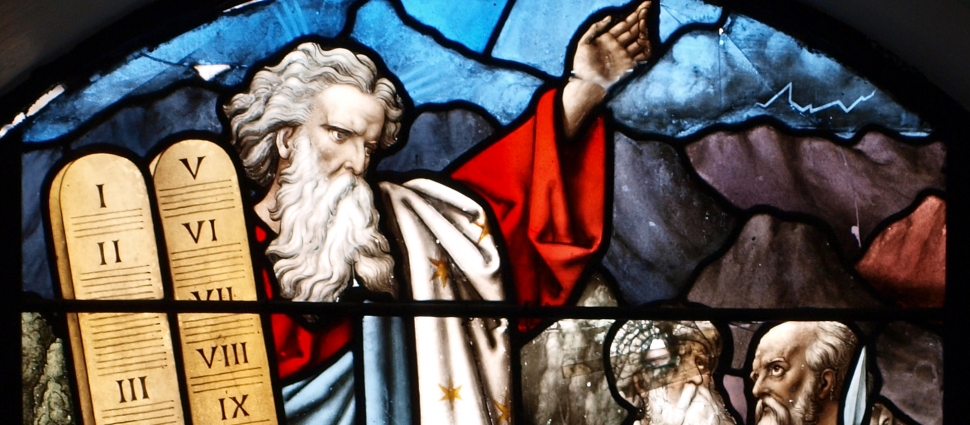The First Commandment and the Church

What use are the Ten Commandments today? We already know them, and we already know no one follows them. Except Jesus, and that’s why we need him. Let’s move on.
Yet, as Treebeard would say, let’s not be so hasty.[1] The Decalogue, like the Gospel, has a way of compressing galaxies of truth, wisdom, and justice into only a few words. One of the great achievements (or rather conservations) of the modern Reformed movement is the repetitive summons to go deeper in the gospel. As J.D. Greear likes to put it, the Gospel is not just the diving board; it’s the pool.[2]
We always need a summons back to the Law, and especially so in our day. This is not in the Galatian way of forging your dutiful trail up the mountain of sanctification, but for the purpose of wise living. How do we consider and apply the heart of God to our cultural moment? Surely not in a reprisal of theocracy. Nor in the nostalgic longing to return to a moral golden age.
Even if a superior moral aura could be objectively identified in a previous era, it still would not do to simplistically cry: “Go back, go back!” First of all, nostaglia by definition whitewashes, narrows the lens, and touches up the image, so we should regard sentiments of nostalgic longing and loss with suspicion, at best. Secondly, we are no more capable of “going back” as a society, than you are of going back to your high school glory days—days which, if you are willing to be honest, were much less glorious to actually live through. Seasons of life as well as generations of society are locked into their own places, woven into their own fabrics of context which supply the nonreplicable colors and contours of that picture.
So we need a constant re-reckoning, a cyclical soul-searching in our own Christian walks, and within our society, to discern where God’s law speaks into, directs, and checks our conscience.
With that being said, let’s examine the First Commandment:
"You shall have no other gods before me."
Like each individual commandment, this one has the whole rest of the law packed inside it if you take the trouble to explore deep enough. After all, what can’t be another god? As soon as something, anything, occupies your attention, your hopes, and your desire more than God, that’s idolatry. You can read Keller’s Counterfeit Gods, or if you prefer, watch fifteen minutes of commercials and come away with the same conclusion about the objects of worship in our Western world: money, sex, and power, constitute the idolatrous trinity.
Rather than hiking these well-worn trails, I would point to one particularly ugly manifestation of American evangelical idolatry: political power. I alluded to some of the causes of this above. Our Christian moral consensus, or Americianity, has evaporated in the last generation. Evangelicals have not only lost their inherited wealth of credibility and prestige, but are increasingly seen as the enemy, the problem.
As if watching the sad, but familiar, and all too predictable sins of the father passed down to the children, we see the evangelical church taking up the playbook of our 16th century Catholic forebearers. As political power wanes, there’s a mixture of both healthy and reactionary reforms, coupled with the desperate striving to hold and regain the strings of politics. We forget Jesus’ crystal clear rebuttal to Pilate: “My kingdom is not of this world”—the implied statement being “If it were, we wouldn’t be having a conversation right now; you’d be kneeling.”
If you read secular news today, it can be exasperating to hear Biblically illiterate people filing “evangelicals” among the laundry list of special interest blocs. In the world outside the church, that’s largely how we’re viewed, and that’s largely how we’re treated. But then again, if the shoe fits, wear it.
I increasingly feel the need to repent of, rather than deny the charge of politicization. In fact, we’ve moved to the point where identifying evangelicals with a political bloc is less of an accusation than it is an assumption. And yes, for most of us evangelicals, this means we’ve sold our souls to the conservative right. But it’s not as if the minority of Evangelicals on the left have avoided this error. Their solution is still framed, if only implicitly, in political terms: Christians should slide towards center, then all would be well.
As evidence of this, we only need to consider the last election. Whether or not I agree with their reasoning, I’m not surprised at a Christian’s ability to prefer and advocate Trump over Biden or vice versa. What stunned me was the ability to be excited about either of these two men. To be fervently, passionately devoted to the absolute rightness, the necessity of a Christian voting for this candidate, not the other. Both sides have set up another god — the state. We have ceased to worship the true God who created the universe with his fingers (Ps 8). Our God is not waiting with bated breath to see whether his name will be glorified and his purposes accomplished. We need to put God back on the throne and remember Romans 13, that there is no authority except that which He chooses to put in place.
Justin Poythress (MDiv, WTS) is Assistant Pastor at Westminster Presbyterian Church in Fort Myers, FL.
Related Links
Podcast: "Unmanipulated Trinity"
"The First Commandment" by John Hartley
"Christ Kept the 10 Commandments" by Mark Jones
The Holy Trinity by Robert Letham
The Life of Moses by James Boice
Notes
[1] Tolkien, J.R.R., The Two Towers
[2] Greear, J.D., Gaining by Losing, p. 57




